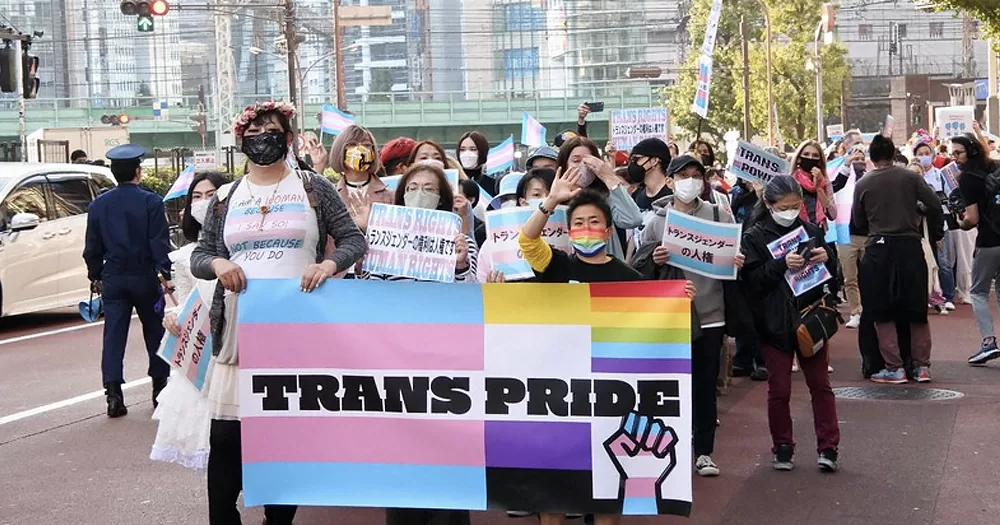On Wednesday, October 25, the Supreme Court in Japan ruled that a law that forces trans people to undergo surgery in order to change their legal gender is “unconstitutional”. The decision reverses a 2019 ruling by the same court that had upheld the law.
A 2004 law in Japan established that people wishing to change their legal gender had to meet certain requirements, including providing a diagnosis of gender dysphoria and undergoing surgery. Several international organisations, including the United Nations and the World Professional Association for Transgender Health, have deemed the surgery requirement for legal gender recognition discriminatory, saying that it infringes on trans people’s human rights.
The Japanese law was challenged before the Supreme Court by a trans woman under the age of 50. Her case argued that the surgery requirement violated her constitutional right to live without discrimination and posed significant physical pain and financial burden on trans people wishing to have their preferred gender legally recognised. Before she brought the case to the Supreme Court, her challenge had been dismissed by both a family court and the high court.
On Wednesday, the Supreme Court finally ruled the clause “unconstitutional”, stating that the surgery requirement “restricts a person’s free rights not to have their bodies invaded against their will”. Such a verdict represents a complete turnaround since 2019, when the Supreme Court struck down a similar challenge.
???️⚧️ BREAKING – Japan’s top court ruled on Wednesday that a legal clause requiring trans people who want to legally change their gender to undergo sterilisation surgery is unconstitutional. pic.twitter.com/IX6rEsyGWU
— Openly ?️? (@Openly) October 25, 2023
Previously having called the law “abusive and outdated”, Human Rights Watch welcomed the ruling, describing it as an “important victory for transgender rights in Japan”.
“This judgement upholds the rights to health, privacy and bodily autonomy of trans people in Japan,” Japan Director at HRW Kanae Doi told the BBC. “It follows years of advocacy and litigation to remove this abusive requirement.”
The decision comes shortly after a local family court in Japan ruled in favour of a trans man, Gen Suzuki, who sought to change his legal gender without having to undergo surgery. In Japan, there are no legal protections against discrimination for LGBTQ+ people, and the nation remains the only G7 member which does not recognise marriage equality.
© 2023 GCN (Gay Community News). All rights reserved.
Support GCN
GCN is a free, vital resource for Ireland’s LGBTQ+ community since 1988.
GCN is a trading name of National LGBT Federation CLG, a registered charity - Charity Number: 20034580.
GCN relies on the generous support of the community and allies to sustain the crucial work that we do. Producing GCN is costly, and, in an industry which has been hugely impacted by rising costs, we need your support to help sustain and grow this vital resource.
Supporting GCN for as little as €1.99 per month will help us continue our work as Ireland’s free, independent LGBTQ+ media.
